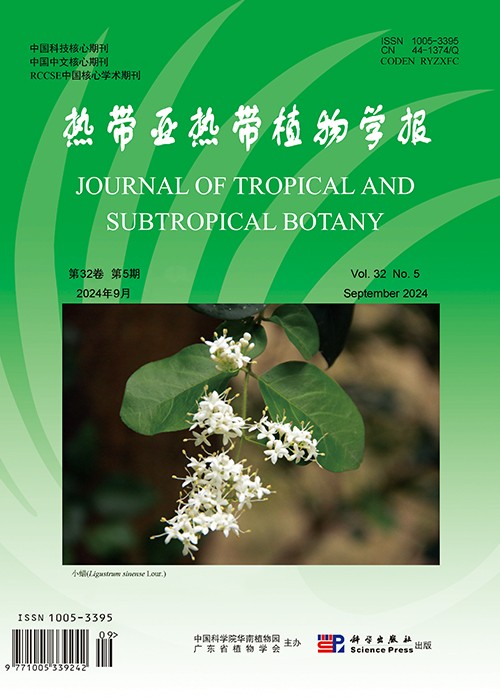植物器官大小调控基因的研究进展
引用次数: 1
摘要
器官大小是植物重要的形态学线索,在不同种间存在显著差异。器官生长受环境因素的影响,如光照和营养;然而,它是由细胞数和细胞大小的固有信息决定的。大量参与细胞增殖和/或细胞扩增调控的基因已被发现,其表达上调或下调通过转录调控、蛋白质合成修饰、激素调控和细胞壁松动等方式改变器官大小,加速器官生长。尽管如此,这些基因通过相对独立的途径发挥作用,因此很难在植物中证明一个完整的调控网络。进一步的挑战将是不同植物物种的调控模式和分子变化。一些参与器官生长的基因已被用于作物育种,并产生了显著的大作物。同样,通过对中草药器官大小调控基因的鉴定,在分子水平上人为地促进器官大小和形态,将有助于克服药用植物的短缺和濒危问题。本文章由计算机程序翻译,如有差异,请以英文原文为准。
Research Progresses on Genes Involved in Regulation of Plant Organ Size
Organ size is an important morphological trail in plants, and shows significant differences among species. Organ growth is influenced by environmental factors, such as light and nutrients; however, it is determined by the intrinsic information of cell number and cell size. A large number of genes involved in regulation of cell proliferation and/or cell expansion have been identified, and their up-regulated or down-regulated expression change organ size and accelerate organ growth by means of transcription regulation, protein synthesis and modification, hormonal regulation and cell-wall loosening, and so on. In spite of this, these genes act through relative independent pathways, making it difficult to demonstrate an integrated regulation network in plants. Further challenges will be the regulation pattern and molecular changes in different plant species. Several genes participated in organ growth have been used in crop breeding, and produced significantly large crops. Similarly, characterization of the genes involved in organ size control of Chinese herbs to artificially promote organ size and morphology at the molecular level will contribute to overcome the shortage and endangerment of medicinal plants.
求助全文
通过发布文献求助,成功后即可免费获取论文全文。
去求助
来源期刊
自引率
0.00%
发文量
2589
期刊介绍:
The Journal of Tropical Subtropical Botany, founded in 1991 and co-sponsored by the South China Botanical Garden of the Chinese Academy of Sciences and the Guangdong Provincial Botanical Society, is a bimonthly national academic journal in Chinese with domestic and international circulation. It gives priority to reporting new discoveries, theories, methods and technologies in the fields of botany, ecology, environmental sciences and their interdisciplinary fields in the tropical subtropical regions, and welcomes scientific research papers on plants from different climatic zones. It also welcomes research papers on plants from different climatic zones, focusing on global climate change and ecosystem services, systems and evolutionary biology, environmental degradation and ecological restoration, biodiversity conservation and sustainable use, agricultural and food quality and safety, and phytochemical resources, plant germplasm innovation and gene discovery and utilisation, as well as the development and utilisation of energy plants. There are columns of research reports, express reports, reviews, commentaries, book reviews and conference news. The journal is a core journal of natural sciences in China and publishes some English manuscripts.
It has become an academic journal with significant influence in the fields of botany, ecology and its intersection in the tropical subtropical region of China, and has a certain degree of visibility in the international arena. It has been successively included in BIOSIS, CAS, CAB, Chinese Science Citation Database and Chinese Biological Abstracts.

 求助内容:
求助内容: 应助结果提醒方式:
应助结果提醒方式:


